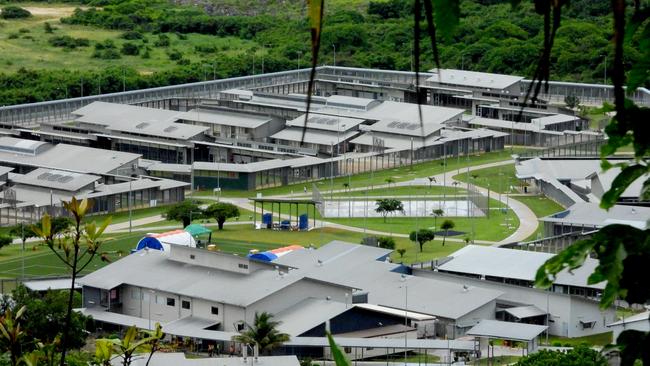Budget 2020: After doing a stretch, criminals can look forward to Christmas Island
The Christmas Island detention centre will be reactivated, with $55m spent on housing high-risk criminals who cannot be deported because of COVID-19 restrictions.

The Christmas Island detention centre will be reactivated, with $55m spent on housing high-risk criminals who cannot be deported because of COVID-19 restrictions.
The Department of Home Affairs expects up to 250 criminals and “unlawful non-citizens” will be housed at the North West Point immigration detention centre, including those convicted for assault, sexual offences, drugs and “other violent offences”.
An official said 180 detainees had been moved to the island since August when it was reopened as a contingency measure. The funding outlined in the 2020 budget is expected to see the centre remain open for at least six months.
“To protect the community from unlawful non-citizens, including those released from prisons, but unable to be deported due to COVID-19 restrictions, the government will provide $55.6m in 2020-21 to reactivate North West Point immigration detention centre,” Home Affairs Minister Peter Dutton said.
The budget papers suggest the program’s expenditure will decrease over the forward estimates due to “lower forecast occupancy rates in offshore detention”.
The measure is one of several national security and border-related programs highlighted in the budget.
Funding increases will be provided to several agencies, but some will receive a haircut.
Approximately $201.5m will be spent implementing the 2020 Cyber Security Strategy, which will include improvements to critical infrastructure and “growing Australia cyber-security skills”.
“It is estimated that a significant cyber attack impacting Australian for four weeks could cost the economy as much as $30bn and around 163,000 jobs,” the papers state.
The Australian Federal Police will be given $300.2m over four years, with new measures to include the establishment of an AFP reserve force and a greater focus on health and wellbeing arrangements for staff.
The reserve force will be comprised of ready-to-deploy personnel to “assist with critical response needs and support ongoing operations”.
A further $15.6m will be diverted from confiscated assets to fund crime prevention and law enforcement initiatives.
Total spending on public order and safety is expected to decrease by 15.1 per cent over the forward estimates, though the budget papers state these will be offset by increases in funding to the AFP and national security agencies.
The Australia Security Intelligence Organisation is to receive $465.2m in 2020-21, marking a $7.8m decrease from its previous funding arrangements. “This is a result of progressing a modest reform program rather than transformation due to the uncertain COVID-19 economic environment,” the papers state.
The Australian Criminal Intelligence Commission is also expecting a slight decrease in funding, down $5.2m to an estimated $98.7m in 2020-2021.
“The decrease is primarily attributed to terminating measures and a decrease in funding for the National Criminal Intelligence Systems project, offset by the new measures,” the papers state.




To join the conversation, please log in. Don't have an account? Register
Join the conversation, you are commenting as Logout